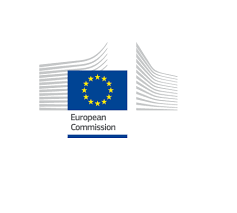Are there political dimensions to open source software and hardware? Americans might be surprised to see such a question, given Washington’s almost complete indifference to the dramatic rise of these approaches to technology development. But that’s not the case in many other parts of the world, and particularly in Europe, where the European Commission (EC) and the governments of many constituent nations have taken great interest in not only promoting the uptake of open software, and, more recently hardware, but incorporating open source software and hardware into procurement decisions and inter-country communication platforms and protocols.

This process continues, and you can have an impact on future decision making by participating in a survey commissioned by the EC to guide its future open source policy development.
The survey questionnaire is targeted at developers and users of open source, takes about fifteen minutes to complete, and can be found here. Input from non-Europeans as well as Europeans is welcome and requested.
The survey is part of an ongoing EC-commissioned OpenSource Impact Survey being conducted by OpenForum Europe, a Brussels-based policy think tank (of which I’ve been a Fellow for many years), and Fraunhofer ISI, a multi-location European research institute.
The scope of the study is “the impact of Open Source Software and Hardware on technological independence, competitiveness and innovation in Europe,” and the high level goal is to “identify strengths, weaknesses, opportunities and challenges of open source in relevant ICT policies,” and is scheduled to be completed and presented early next year. Of particular interest are the following technical areas: cybersecurity, artificial intelligence (AI), digitizing European Industry, the connected car, HPC, big data and distributed ledger technologies.
The final evidence, comprising a review of relevant literature, data, and the results of the questionnaire, will be used to generate policy recommendations “that can augment and accelerate the benefits of OSS and OSH for a competitive EU software and hardware industry and a sustainable digital transformation of the EU economy.”
Input from the Openness community is deemed to be crucial for the success of this study, and completing the questionnaire will give you a unique opportunity to contribute to shaping future Open Source policies in the EU and, by example, potentially beyond.
It’s refreshing to see such active interest on the part of policy makers in one of the three largest markets in the world. If you’d like to help ensure that the policies that result are good ones, please take a few minutes to complete the survey. And you can help spread the word with this Tweet.